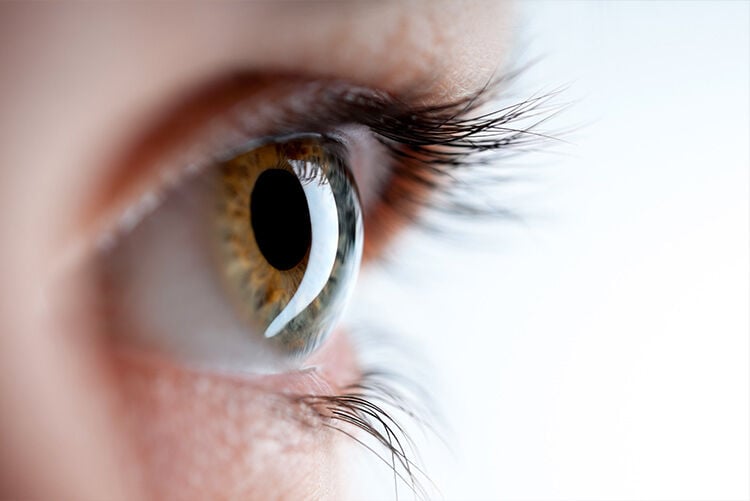Taking proper care of your eyes is essential for maintaining healthy vision, preventing eye strain, and reducing the risk of eye diseases as you age. Your eyes are not only one of the most important sensory organs but also require consistent care and attention to ensure long-lasting, sharp vision. In this detailed guide, we explore the steps you can take to keep your eyes healthy, reduce the risk of damage, and maintain clear vision throughout your life.
1. Eat a Nutrient-Rich Diet for Eye Health

The food you eat has a direct impact on your eye health. A diet rich in vitamins, minerals, and antioxidants can help prevent eye conditions like cataracts, macular degeneration, and dry eyes. Consuming foods that support eye health is one of the most important steps in maintaining optimal vision.
Essential Nutrients for Eye Health:
-
Vitamin A: Vital for maintaining a clear cornea and healthy vision (e.g., carrots, sweet potatoes, spinach).
-
Vitamin C: Reduces the risk of cataracts and supports blood vessels in the eyes (e.g., oranges, strawberries, bell peppers).
-
Vitamin E: Protects eye cells from oxidative damage (e.g., almonds, sunflower seeds, avocados).
-
Omega-3 Fatty Acids: Prevents dry eyes and supports overall eye function (e.g., salmon, walnuts, flaxseeds).
-
Zinc: Helps deliver vitamin A from the liver to the retina and protects the eye (e.g., beef, shellfish, beans).
Additional Tips:
-
Drink plenty of water to keep your eyes hydrated.
-
Avoid excessive junk food and sugary items, which can contribute to diabetes, a leading cause of vision problems.
Source:
2. Follow the 20-20-20 Rule for Screen Time

With increasing digital screen time, many people experience digital eye strain, which can lead to dry eyes, headaches, and blurred vision. To reduce the strain caused by prolonged use of computers, phones, and other devices, it’s important to follow the 20-20-20 Rule.
What Is the 20-20-20 Rule?
-
Every 20 minutes, take a 20-second break to look at something 20 feet away. This gives your eye muscles a chance to relax and reduces fatigue.
Additional Tips for Reducing Screen Strain:
-
Keep your screen at arm’s length (about 25 inches) from your eyes.
-
Adjust screen brightness to match your surroundings to avoid glare.
-
Use blue light filters or night mode on devices to reduce exposure to blue light, which can cause eye fatigue.
-
Blink frequently to avoid dryness caused by staring at screens for long periods.
Source:
3. Get Regular Eye Check-Ups

Even if you have no noticeable vision problems, it’s important to have your eyes examined by a professional at least once a year. Regular eye check-ups can help detect potential issues before they become severe.
Why Are Eye Exams Important?
-
Detects early signs of eye diseases such as glaucoma, cataracts, and macular degeneration.
-
Ensures your glasses or contact lens prescription is up to date.
-
Identifies underlying health issues like high blood pressure or diabetes that can affect your eyes.
Signs You Should See an Eye Doctor Immediately:
-
Blurred vision
-
Frequent headaches
-
Eye pain or discomfort
-
Red, itchy, or watery eyes
-
Increased sensitivity to light
Source:
4. Protect Your Eyes from UV Rays

Exposure to ultraviolet (UV) rays from the sun can significantly increase the risk of cataracts and other eye conditions. It’s crucial to protect your eyes from UV damage.
Tips for Sun Protection:
-
Wear UV-blocking sunglasses that offer 100% UVA and UVB protection.
-
Use a wide-brimmed hat to block the sun’s rays when outdoors.
-
Avoid looking directly at the sun, especially during midday when UV rays are strongest.
Source:
5. Keep Your Eyes Clean & Prevent Infections
Good hygiene plays a significant role in preventing eye infections such as conjunctivitis (pink eye). It’s important to follow proper hygiene practices to keep your eyes clean and free from harmful bacteria.
Tips for Healthy Eyes:
-
Wash your hands regularly before touching your eyes.
-
Avoid rubbing your eyes, as this can transfer dirt and bacteria.
-
Remove eye makeup before sleeping to prevent irritation and infections.
-
For contact lens wearers:
-
Always clean and store your lenses properly.
-
Avoid wearing them longer than recommended.
-
Use fresh, non-expired lens solution.
-
Source:
6. Get Enough Sleep & Rest Your Eyes

Lack of sleep can cause eye strain, dark circles, and dryness. Rest is essential for your overall eye health.
Sleep Tips for Eye Health:
-
Aim for 7–9 hours of sleep each night.
-
Use a humidifier if your eyes feel dry during sleep.
-
Avoid screens at least 30 minutes before bed to reduce blue light exposure.
Source:
7. Avoid Smoking & Limit Alcohol Intake

Both smoking and excessive alcohol consumption can damage blood vessels in the eyes, leading to an increased risk of cataracts, macular degeneration, and other vision problems.
Why Is Smoking Harmful to Your Eyes?
-
Increases the risk of macular degeneration.
-
Contributes to the formation of cataracts.
-
Reduces oxygen supply to the eyes, causing damage to the optic nerve.
Tips:
-
If you smoke, try quitting or gradually reducing your intake.
-
Limit alcohol consumption to promote better eye health.
Source:
8. Exercise Regularly & Manage Health Conditions
Your overall health affects your eyes. Conditions like diabetes, high blood pressure, and obesity increase the risk of eye diseases. Regular exercise promotes good circulation and helps manage these conditions.
Healthy Habits for Your Eyes:
-
Exercise regularly to keep your blood circulation in check.
-
Control blood sugar levels if you have diabetes.
-
Avoid excessive alcohol consumption, which can dehydrate your eyes.
Source:
9. Use Proper Lighting When Reading or Working
Poor lighting can cause eye strain, leading to discomfort and headaches. Proper lighting is essential for eye comfort, particularly during reading or working.
Lighting Tips for Eye Comfort:
-
Avoid reading in dim light—use a bright but soft light source.
-
Position your computer screen so that light does not reflect directly into your eyes.
-
Avoid harsh fluorescent lights—opt for warm white or natural light bulbs.
Source:
10. Use Artificial Tears or Eye Drops (If Needed)
If your eyes feel dry or irritated, you can use lubricating eye drops (artificial tears) to keep them moist and relieve discomfort.
When to Use Eye Drops:
-
If you experience dryness from prolonged screen use.
-
After exposure to air conditioning or strong winds.
-
If you wear contact lenses for extended periods.
Source:
Final Thoughts: Protect Your Vision for a Lifetime
Taking care of your eyes is crucial for maintaining good vision and overall eye health. By following these practical steps, such as eating a nutrient-rich diet, protecting your eyes from UV rays, and getting regular eye check-ups, you can reduce the risk of eye diseases and ensure your eyes stay healthy for a lifetime. Don’t forget that consistent care, including proper hygiene and protecting your eyes from strain, can go a long way in preserving your vision.
Sources:
-
American Optometric Association – Screen Time and Eye Health
-
Centers for Disease Control and Prevention – UV Protection for Eyes
